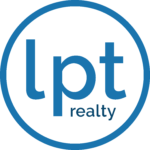As the average home value in Nevada reaches $443,103, up 6.1% from the previous year, understanding the diverse financing options available in the Las Vegas real estate market is crucial for both homebuyers and investors. Whether you’re a first-time buyer or an experienced investor, navigating the complex world of home loans and financing solutions can be a daunting task. In this comprehensive guide, we’ll explore the traditional mortgage options, government-backed loan programs, and alternative financing solutions that can help you achieve your Las Vegas real estate dreams.
From fixed-rate mortgages and adjustable-rate options to jumbo loans for luxury properties, you’ll gain a deeper understanding of the mortgage landscape. Additionally, we’ll delve into government-backed programs like FHA, VA, and USDA loans, which offer unique benefits and eligibility criteria. Understanding the current market trends, including property values, interest rates, and the impact of financing on market competition, will empower you to make informed decisions.
Whether you’re a seasoned investor or a first-time homebuyer, exploring the wide array of mortgage options available in Nevada can open the door to your next successful real estate venture. Let’s dive in and uncover the financing solutions that can turn your Las Vegas property aspirations into reality.
Traditional Mortgage Options for Las Vegas Home Buyers
When it comes to purchasing a home in Las Vegas, prospective buyers have access to a variety of traditional mortgage options to consider. From fixed-rate mortgages that offer consistent interest rates and predictable monthly payments, to adjustable-rate mortgages (ARMs) that provide lower initial rates, there are options to suit different buyer needs and preferences.
Fixed Rate Mortgages and Their Benefits
Fixed-rate mortgages are a popular choice among long-term homeowners, as they provide the stability of a consistent interest rate and monthly payment throughout the life of the loan. This makes budgeting and financial planning more straightforward, particularly for those who plan to stay in their [NV property financing] for an extended period.
Adjustable Rate Mortgages (ARMs) Explained
For buyers with shorter-term plans, ARMs can be an attractive [home loans] option. These mortgages typically feature lower initial interest rates, which can make monthly payments more affordable, particularly in the early years of homeownership. However, the rates on ARMs are subject to periodic adjustments, which can lead to fluctuations in monthly payments over time.
Understanding Jumbo Loans for Luxury Properties
For those looking to purchase high-end [mortgage options] in Las Vegas, jumbo loans may be the solution. These specialized [NV property financing] products exceed the typical loan limits set by the Federal Housing Finance Agency (FHFA), allowing buyers to finance luxury properties with stricter requirements, such as higher credit scores and lower debt-to-income ratios.
Government-Backed Loan Programs in Nevada
When it comes to financing a home in Las Vegas real estate, government-backed loan programs can be a game-changer for aspiring homebuyers. These programs, offered by the Federal Housing Administration (FHA), the Department of Veterans Affairs (VA), and the United States Department of Agriculture (USDA), provide more flexible requirements and competitive terms, making homeownership more accessible.
FHA loans, for instance, accommodate lower credit scores and allow down payments as low as 3.5%. VA loans offer zero down payment options for eligible veterans and service members, while USDA loans target rural area buyers with low to moderate incomes, providing competitive rates and no down payment requirements.
These government-backed programs aim to increase homeownership accessibility in Nevada, particularly for first-time buyers and those with limited financial resources. While FHA loans require mortgage insurance, VA and USDA loans often have more favorable terms. Each program has its own eligibility criteria, so it’s essential to consult with local real estate experts to determine the best fit for your unique situation.
By taking advantage of these government-backed options, Las Vegas homebuyers can overcome traditional barriers to entry and make their real estate dreams a reality. Whether you’re a first-time buyer or looking to expand your investment portfolio, exploring these programs can significantly improve your chances of success in the Las Vegas real estate market.
Real Estate Financing Las Vegas: Current Market Trends
The Las Vegas real estate market continues to captivate investors and homebuyers alike, showcasing a competitive landscape with a low homeowner vacancy rate of 0.7%. However, the current financing landscape presents both opportunities and challenges for those seeking to purchase Las Vegas real estate.
Local Property Values and Interest Rates
Average home values vary across the Las Vegas metropolitan area, with the city of Las Vegas itself boasting a median price of $426,020, while neighboring Henderson and North Las Vegas sit at $485,812 and $406,543, respectively. As of late 2024, interest rates have settled above 5%, affecting overall affordability and potentially influencing homebuyer decisions.
Down Payment Requirements in Different Areas
- Down payment requirements fluctuate based on loan type and property location, with some areas offering more favorable financing options.
- Several financing solutions and assistance programs are available to help homebuyers navigate the down payment hurdle, particularly for first-time and low-to-moderate income buyers.
Market Competition and Financing Impact
The competitive nature of the Las Vegas real estate market may also influence financing terms, with buyers needing to act quickly and potentially facing higher prices. Understanding these trends is crucial for effectively navigating the Las Vegas real estate financing landscape.
By staying informed about the latest property values, interest rates, and financing considerations, prospective homebuyers and investors can make more informed decisions and find the right solutions to achieve their real estate goals in the vibrant Las Vegas market.
Alternative Financing Solutions for Property Investors
For real estate investors in the vibrant Las Vegas market, traditional mortgage options may not always fit their unique financing needs. Fortunately, there are several alternative financing solutions that can provide the flexibility and speed required to capitalize on lucrative investment opportunities.
Commercial Lending Options
Commercial loans offer an appealing choice for investors with properties of 5 or more units, or those with multiple residential investment loans. These loans typically require larger down payments, often around 25%, and shorter loan terms compared to traditional residential mortgages. However, the tradeoff can be access to higher loan amounts and more streamlined approval processes.
Hard Money Loans and Bridge Financing
Hard money lenders provide short-term, high-interest loans that can be particularly useful for property flipping or quick acquisitions. While the interest rates may be higher, these loans can provide the speed and flexibility needed to secure the right investment properties in a competitive Las Vegas market. Bridge financing is another option for investors looking to bridge the gap between the sale of one property and the purchase of another.
House Hacking Strategies
For real estate investors, the “house hacking” strategy can be a game-changer in Las Vegas. This approach involves purchasing a multi-unit property, such as a duplex or triplex, and living in one of the units while renting out the others. By leveraging residential mortgage rates, investors can potentially offset their own housing costs and generate passive income from the rental units.
These alternative financing methods offer real estate investors in the Las Vegas area a range of options to explore, each with its own unique benefits and considerations. By understanding the nuances of commercial lending, hard money loans, bridge financing, and house hacking, investors can make more informed decisions and unlock new opportunities in the dynamic Las Vegas real estate market.
| Financing Option | Key Features | Potential Benefits |
|---|---|---|
| Commercial Loans | – Larger down payments (typically 25%) – Shorter loan terms – Higher loan amounts |
– Suitable for properties with 5+ units – Streamlined approval process for investors |
| Hard Money Loans | – Short-term, high-interest loans – Flexible underwriting criteria |
– Quick access to financing – Ideal for fix-and-flip or time-sensitive acquisitions |
| House Hacking | – Purchasing multi-unit properties – Living in one unit and renting out the others |
– Potential to offset housing costs – Ability to leverage residential mortgage rates |
Qualifying Requirements and Documentation
Securing financing for your Las Vegas property purchase requires meeting specific criteria. To qualify for a mortgage, lenders typically look for a credit score between 640 and 680 for investment properties, with better interest rates for scores above 740. Your debt-to-income (DTI) ratio is also crucial, as lenders assess your ability to manage additional mortgage debt.
The documentation process often includes providing W-2s, tax returns, pay stubs, and bank statements. For investment properties, you may need to demonstrate cash reserves equivalent to 6-12 months of mortgage payments. Additionally, the “28% rule” suggests keeping your mortgage payments below 28% of your monthly income.
Understanding and preparing for these mortgage qualifications can streamline the financing process in the competitive Las Vegas real estate market. By familiarizing yourself with the necessary requirements and documentation, you can position yourself as an attractive borrower and increase your chances of securing the Las Vegas home loans you need to turn your real estate dreams into a reality.
| Financing Requirement | Details |
|---|---|
| Credit Score | 640-680 for investment properties, with better rates for scores above 740 |
| Debt-to-Income (DTI) Ratio | Lenders assess ability to manage additional mortgage debt |
| Required Documentation | W-2s, tax returns, pay stubs, bank statements |
| Cash Reserves | 6-12 months of mortgage payments for investment properties |
| 28% Rule | Keeping mortgage payments below 28% of monthly income |
By staying informed about the financing solutions available and the qualifying requirements, you can navigate the Las Vegas real estate market with confidence and secure the financing you need to achieve your homeownership goals.
Conclusion
The Las Vegas real estate market offers a diverse range of financing options to cater to the needs of various buyers and investors. From traditional mortgages, government-backed loan programs, and alternative financing solutions, there are ample opportunities for prospective homeowners and property investors to navigate the local market successfully.
Understanding the nuances of each financing option, including factors like credit scores, down payment requirements, and market trends, is crucial for making informed decisions. Leveraging resources such as down payment assistance programs and professional guidance can help buyers and investors overcome potential challenges and achieve their real estate goals in the dynamic Las Vegas market.
As the Las Vegas real estate landscape continues to evolve, with projected stabilization, increased housing supply, and ongoing economic growth, both buyers and investors can explore a wide array of financing possibilities to secure their dream properties or capitalize on investment opportunities. By carefully evaluating their financial capabilities and aligning them with the available financing options, prospective homeowners and investors can turn their real estate aspirations into reality in the thriving Las Vegas real estate market.


